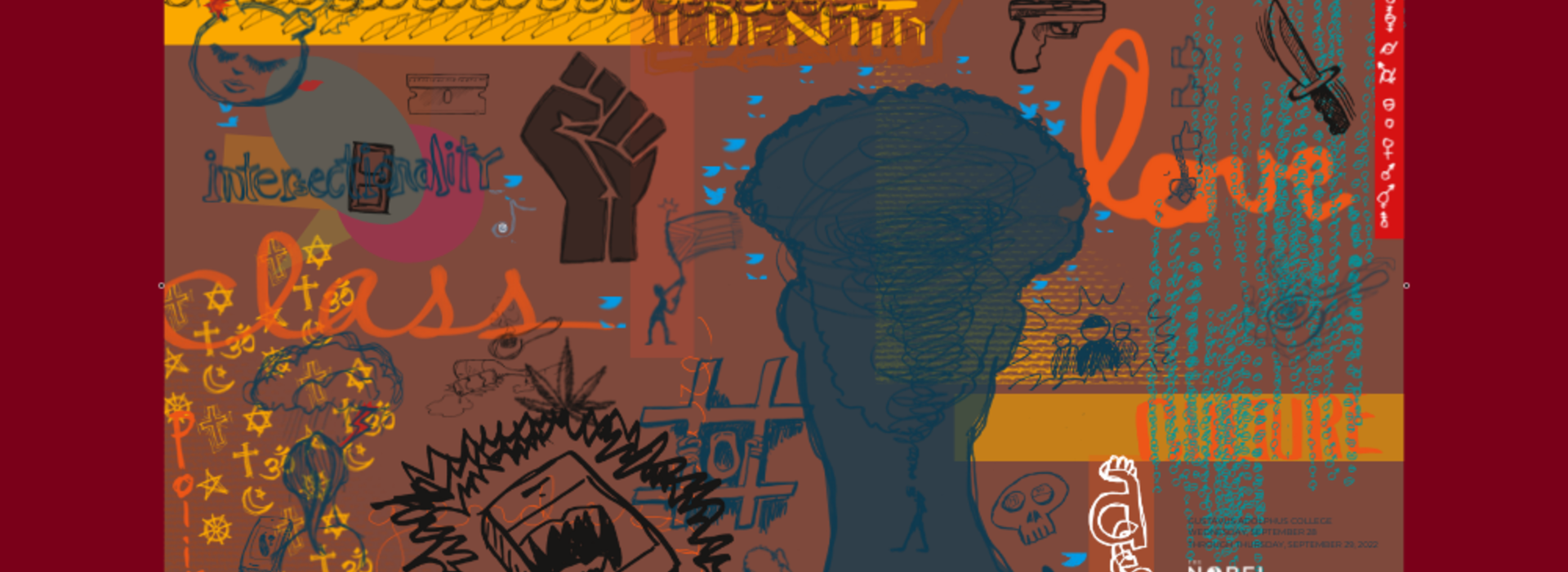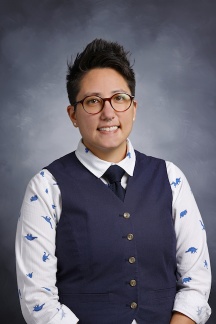
Dr. G. Nic Rider presents at this year’s Nobel Conference at Gustavus Adolphus College
Dr. G. Nic Rider presents at this year’s Nobel Conference at Gustavus Adolphus College
Dr. G. Nic Rider engages in a conversation on radical healing for transgender and gender diverse youth communities, including collective actions.

G. Nic Rider, PhD, an assistant professor at the Insitute for Sexual and Gender Health in the Department of Family Medicine and Community Health at the University of Minnesota and the Director for the National Center for Gender Spectrum Health, had the honor of speaking at this year’s Nobel Conference 58: Mental Health (In)Equity and Young People at Gustavus Adolphus College on Sept. 28 - 29, 2022.
Dr. Rider’s lecture at the conference was titled, Radical Healing and Inclusive Change-Making: Centering Transgender and Gender Diverse Communities. “I called it Radical Healing and Inclusive Change-Making because some of what I talked about was using the words and images of queer and trans teenagers and adults. I was the one who got to tell the story, but it was a lot of their own story coming through,” they say.
Transgender and gender diverse (TGD) people are those whose gender identity does not match their sex assigned at birth. “I read some of their words and shared their images. It made it more powerful and meaning-making for people who were listening, of all identities, to see the impact interpersonal, systemic oppression and discrimination, including in healthcare settings, have had on the mental health of these young people,” Dr. Rider explains.
Their topic explicitly focused on queer and transgender adolescents and young adults of color. At the presentation's start, Dr. Rider dedicated the lecture to all TGD young people listening. For them, it was crucial to show representation and visibility to the TGD community, whose health needs have mainly remained invisible for decades.
At the conference, each presenter came from their subfields in the larger mental health field. The conference was set up to discuss and dissect the intersections of science and ethics. Dr. Rider found it interesting that they all had social justice-driven themes of similar and vital key takeaways.
“Many queer and trans students were coming up to me saying how they felt very seen and validated and how important it was for them to see a topic like that at a conference. Overall that’s the important part–that it's resonating with the community, especially with young people,” notes Dr. Rider.
TGD individuals experience disproportionate victimization rates and mental health conditions, yet they also tackle barriers around accessing health care. Dr. Rider believes it is essential for people to understand and improve the healthcare experiences of these individuals and allow these young people to have a space where they’re heard.
“For me, I think that’s appalling, and I think that having that personal tie-in also fuels my fire and passion for doing this work,” Dr. Rider exclaims. “Asking the questions that, for so many years, I was told would ruin my career if I even asked. Now I can say, ‘Well, I’m not [ruining my career], and clearly, it’s meaningful work.’ It also changes lives and the healthcare system, even if it’s happening slowly,” says Dr. Rider.
Much of Dr. Rider's work is community-based or youth participatory action research. They are working on grants with colleagues incorporating creative methods to help young people share their stories. Dr. Rider says it challenges what science can look like when they can be creative in different ways. Their work also brings in a lot of other people’s cultural backgrounds, where art is a big part of how people share their experiences. They hope to get these grants funded to continue that work.
They ended their remarks by reflecting on their work. “To be able to not only pose questions I think are important but also incorporate questions that the young people say is important–that’s a part of doing this work well. Shifting and changing as I need to represent and reflect their experiences.”
You can watch Dr. Rider’s presentation for free here.